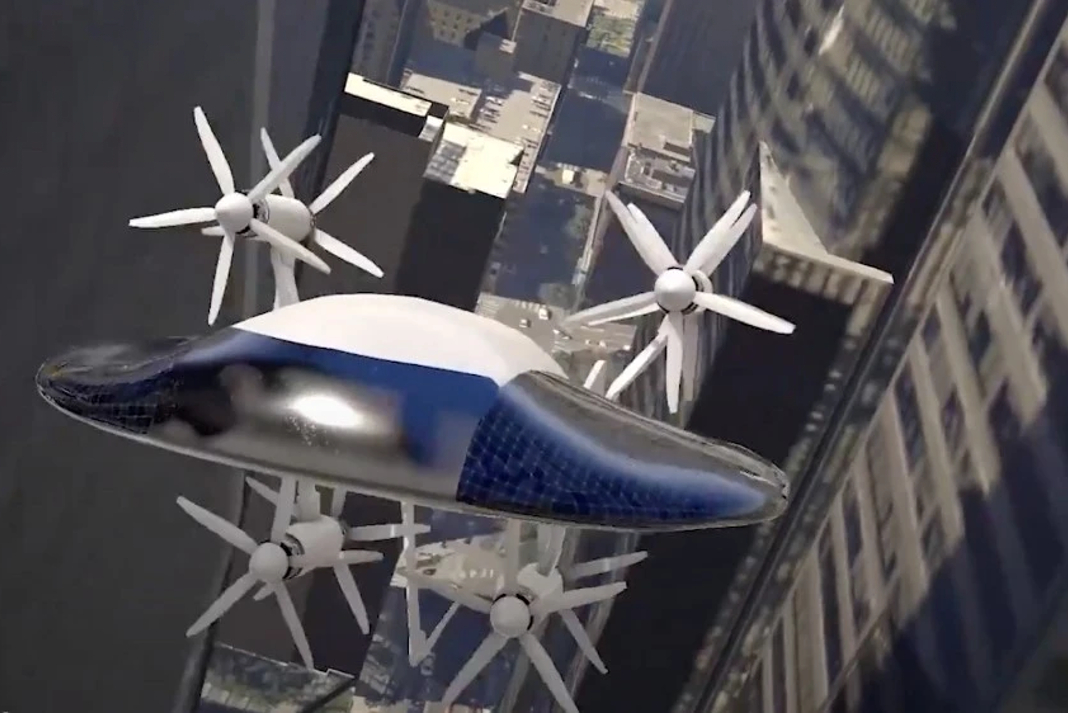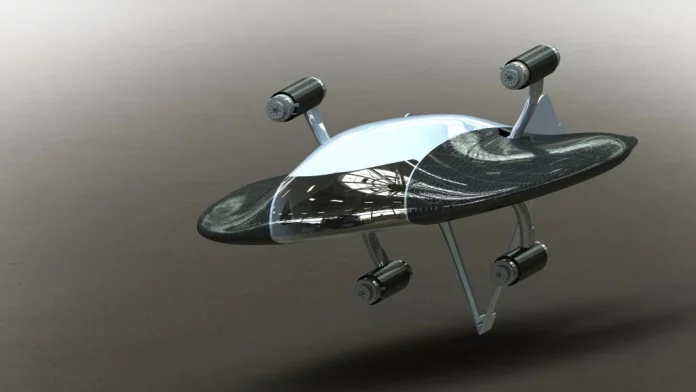The ZEVA ZERO eVTOL is the Washington state company’s first vehicle
If you are in the market for a personal UFO, look no further as the ZEVA ZERO eVTOL is coming soon. Washington-based aerospace company ZEVA is on track to bring their single-person eVTOL that is shaped like a disc and can zip away at 160 mph.
With the ZEVA ZERO eVTOL, the company is bringing short-range travel into the third dimension, utilizing air vehicles that can fly at high speeds and take off and land from anywhere. ZEVA’s goal is to enable urban air mobility by designing an eVTOL aircraft to fly a small amount of passengers or cargo more optimally than an air taxi or ground transportation vehicle would. For example, an air taxi would require multiple steps from one vertiport to another vertiport while including ground transports. With the ZERO, it is point A to point B from origin and destination.
According to ZEVA, the ZERO can travel above 160 miles per hour in hopes to become the fastest method to get anywhere within a 50-mile radius. Speed and efficiency is the key here as well as safety, and ZEVA plans to make the ZERO fully autonomous so anyone can fly the eVTOL vehicle even without a pilot’s license. “The Zero’s compact form, speed and range make it perfect for island hopping, moving between remote properties and ship to shore,” states CEO of ZEVA, Stephen Tibbets. “It will also turn any reasonably sized yacht into an aircraft carrier.”

The ZEVA ZERO eVTOL’s outstanding performance comes from its octocopter arrangement combined with its wing-body design. This patent-pending design provides a wing-borne lift when cruising while remaining small enough to fit into a conventional car parking place. Dual propellers are attached to four nacelles powered by a 25-kW battery pack. When the four propellers retract as the ZEVA ZERO eVTOL converts to horizontal flight, the 8-foot diameter carbon-fiber body acts as a wing that generates lift.
“Our blended wing-body is very compact and can fit into a standard automobile parking spot, ensuring that what we’re building fits within existing infrastructure,” added Tibbets. “What is appealing from a manufacturing and ownership perspective, the design is simpler and manufactured with fewer parts so that it is more reliable and less expensive to produce.”
ZEVA is now flight-testing a full-scale prototype and intends to focus on the emergency first response sector, where having a medic on the scene faster can mean the difference between life and death. The company expects the ZEVA ZERO eVTOL to be certified by 2023 and released the following year at a starting price of around $250,000. For those eager to try it out as soon as possible, Tibbets has mentioned the ZERO will qualify as an experimental craft about six months from now, so anyone with a pilot’s license can start testing it out in 2022.
